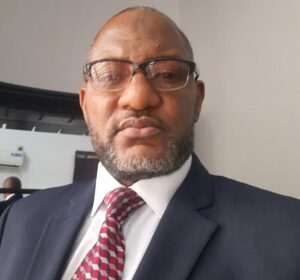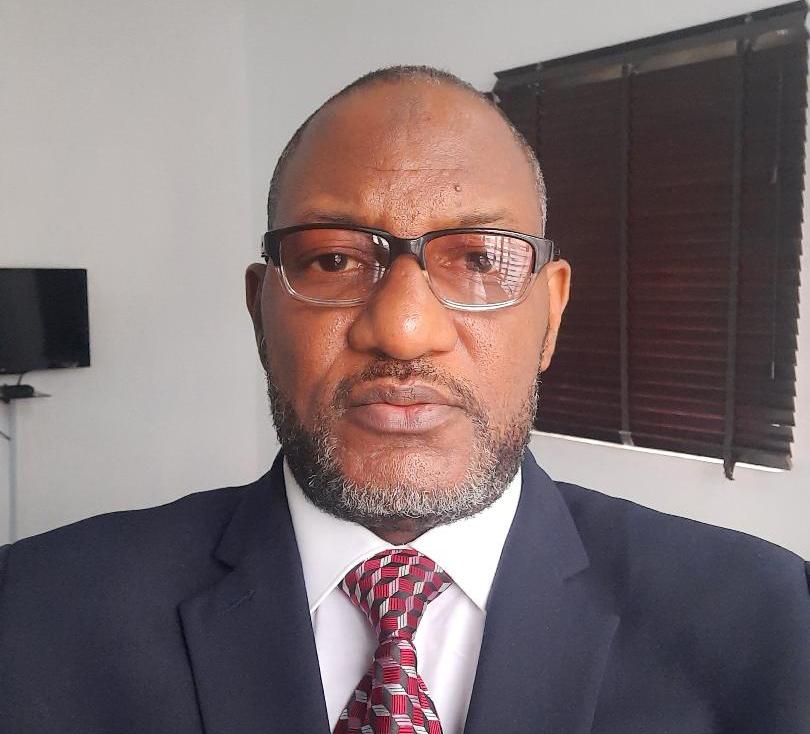Mr. Aliu Akoshile, Publisher/Editor-in-Chief, NatureNews and former Managing Director/Editor-in-Chief of the Daily Times in this online interview with Lekan Otufodunrin spoke on his recent rescue work in the Daily Times, new media project and the way out of the challenges in the industry.
Your exit from Daily Times came as a surprise considering some major steps being taken to restore the glory of the newspaper by the management you headed. Why did you have to leave at the time you did?
In embarking on an assignment, it’s normal to set goals. And goals, as you know, can be short term, mid-term or long term. When I was invited by the Publisher of Daily Times, my instinct was to reject the offer for two reasons. First, I had then just taken voluntary early retirement from Daily Trust after nearly 11 years. So, I thought I needed some break away from the rigours of media management. Second, some of my professional colleagues had shared with me a negative perception of the offer.
But on a balance, I accepted the offer partly to gratify the nostalgic feelings I had for Daily Times but more importantly, I considered it a great opportunity to play the historic role of repositioning the brand for sustained growth. You should also note that it was Daily Times Nigeria that offered me my formal journalism exposure as an Intern in 1986. I gave my all to the task and I felt fulfilled that I left the brand better than the way I met it. We have laid a solid foundation for its growth.
Accepting to be the Managing Director of the company considering its lost glory was regarded as a step of faith on your part. What were you able to achieve during your stay?
Yes accepting the offer of MD/EiC may be considered a leap of faith. Remember, the public perception of the brand, when I took over, was not positive. Before I resumed, I did a quick audit of the brand. And in fairness, the publisher was not defensive when I confronted him with the mirror image. At least, that made my work easier as we knew where to draw the line between professionalism and relationships. I’m an advocate of the value-driven business relationship.
The critical challenges then were to change public perception, restructure, reactivate and reposition the brand by leveraging personal integrity and technical skills.
Anyway, we adopted a bootstrap strategy – went for low cost, demanded high efficiency and productivity from the pioneering staff. We saw a big vacuum in accounting so we recruited an accountant who was of unimpeachable character. Other critical staff were fixed in strategic roles. Given our limitations on funding, we subscribed to NAN for the multimedia bulletin. We developed a standard website and mobile App to deepen our digital footprints. In less than 18 months, we had achieved a remarkable mileage in terms of mind awareness. We met obligations to staff and suppliers/clients and inaugurated an editorial board which consists of eminent scholars and professionals. The icing on the cake was when the Daily Times emerged atop Nigerian media in attracting the Google media support initiative on COVID-19. I assembled a great team of passionate and committed staff both in editorial and operations.
Congratulations on your new newspaper, NatureNews. Why are you focusing on Environment instead of a general interest publication considering your antecedents in the industry?
Good question. A trained journalist must be versatile and swift to take on any beat if the need arises. And when the reporter climbs the pyramidal ladder and becomes an editor, the experience of covering many beats in the career trajectory is handy and very useful. Ultimately, when you become an editor-in-chief, you have to function as a generalist, knowing a bit of everything. At that point, you are probably like the Professor of Practice in the British tradition of town meets gown.
So, focusing on environmental issues after about 34 years of media practice is a strategic move. This is a remarkable growth area in the media ecosystem and the new focus of development journalism. Climate change and sustainability of the environment will top the UN agenda for another decade. Ironically, none of the ten or so global news media focusing on climate change is based in Africa. Hence, www.naturenews.africa is here to fill the void and give a voice to the continent.
What does it take to be a successful newspaper publisher now with the disruption of the media landscape by various factors?
The major disruption affecting newspaper publishing today is digital technology. This has permanently altered the pattern of news gathering, processing and consumption globally. But having said that, one must also situate the news consumption pattern within the context of the users’ psychographics. Irrespective of the users’ experience that may be unearthed by audience research, the focus is media content.
To successfully run a newspaper, the publisher must understand market dynamics, share his vision, set goals, set up the structures, display financial discipline, embrace corporate governance and be flexible to alter operational tactics when business strategy changes.
READ ALSO: ‘HOW JOURNALISTS, MEDIA CAN EFFECTIVELY MAXIMISE DATA REPORTING SKILLS’
Before the Coronavirus pandemic, the Nigeria print media industry particularly has been troubled with low sales of copies and advertising. With the benefit of hindsight as a former Business Director of Daily Trust and other media engagements, what are the managements not getting right?
That’s a tricky question. You know I am now a Fellow of the Institute of Management Consultants (laughs!). I think discussing this comprehensively here may lead to unauthorized disclosures. But on a general note, the media managers are trying their best in the circumstance. The challenge is quite laborious and can be so daunting. As you rightly noted, I have been through it. I would say the fundamental principle in navigating a turbulent business era is continuous innovation around the 7Ps: product, process, people, pricing, packaging, placement (or place) and especially promotion.
But here, we took brand promotion for granted on the premise that a media company should not promote itself. A major media spender on brand marketing is The Economist. I read a report recently which says The Economist spent $65.2 million on marketing investment in 2018 alone. Elsewhere in Africa, media brand marketing was rampant. If you are on the streets of Nairobi, you will be confronted with an avalanche of outdoor adverts including ultra-waves, spectacular unipole, backlit ultra-vision and lamp holders, all promoting media companies. So, media managers must innovate around creative ideas to survive in a depressed economy.
What is your view of the likely bleak future for the Print media globally as predicted by some media experts?
The handwriting on the wall is certainly ominous. The print media has been bleeding on sales copy in the last seven six years, and much earlier than that in Europe and America. But the hard copy will not die, not so soon. In fact, the industry stakeholders in sub-Saharan Africa can revolutionise the media business for a surprise rebound. This is a matter of strategic thought process and application of disruptive innovation that is driven by a deep understanding of our consumer behaviour. The question is, despite the global concerns on falling copy sales, why are single newspapers in Japan, China and India still selling millions of copies daily. I had the opportunity to visit the head office of the Times of India in Delhi and you would be amazed at the huge numbers they print from their multiple presses.
But notwithstanding the current strategies, the survivors are adopting in Nigeria to delay the inevitable occurrence, the future of newspapers is digital. That is for sure as the prime movers are already dominating the space. Two of the global leaders, Washington Post and the Wall Street Journal, are now in the league of over one million digital paid subscribers for newsreaders. Their flagship, the New York Times, has even grossed 3.8 million subscribers as at end of 2019. But again, what works in Europe and America, may not be transplanted to Africa without proper customization to align with the realities of our economic development and infrastructure.
Already, the online space you want to play in is getting saturated. What is going to be different about your online offerings?
Well, saturation of market space can only happen when the players have stopped being creative and innovative, and everyone is struggling in what business strategists called “the red ocean”. So, one must get out of the bloody ocean to creatively innovate a solution that fills some gaps.
Most of our colleagues in the online space are doing pretty well looking after everything. We are focusing on environmental issues, climate change and sustainability of the global ecosystem based on concentric circles of interest – Nigeria, the rest of Africa and the world. This is our niche. That’s the difference.
What is your advice for media professionals who want to excel and remain relevant in the industry?
The hallmark of media excellence is absolute professionalism. It’s as simple as that. A journalist that wants to be relevant will continue to uphold ethical standards in discharging the weighty burden of public trust that journalism entails. Once firmly established, the reporter’s integrity encourages the readers to vouch for the credibility of the news, even if the news report was unpalatable.

Is this really practical or just a mere idea of how a reporter’s personal integrity could disarm an angry news source?
Believe me, it is not hypothetical. I actually experienced this years back. I was in Hilton, Dakar for an official assignment. Suddenly I sighted former President Obasanjo walking briskly along the hotel’s foyer. I instinctively raced towards him just to greet as I had no idea of why he was there or where he was headed. But his pace was so fast that the only option I had was to sprint after him. If I had done that, his security details would have mistaken me for an attacker. So, I trailed him doubling my own pace just to close the gaps between us.
Then he literally barged into a conference hall where about 300 guests were already seated listening to another speaker. President Obasanjo was barely done exchanging pleasantries with VIPs on the high table when the compere recognized his presence and immediately invited him to speak. The event, as I later realized from the backdrop, was the “West African Regional Conference on Youth Unemployment and Poverty”. The former President, as usual, cleared his throat with a suppressed smile. At that point, I flung open my iPad, which luckily I had with me, and began to video-record him and the audience. From what I heard him say, I knew I had got a great cover story for the next day.
Expectedly the story came out in Daily Trust (November 22, 2012) with a kicker and banner headline, I think, “Youth unemployment: Revolution imminent in Nigeria – Obasanjo”. Of course, the Jonathan Presidency felt rattled by the report. But curiously, the former President, I later learnt, was also miffed. Perhaps he didn’t imagine a journalist from Nigeria was in the hall as he spoke very candidly, occasionally drawing similitude from his knowledge of revolution as a General. However, a former editor and media consultant to the former President later called to relay how peeved his principal was when he saw the story. Then this: “It was when I saw your name in the byline that I told the General the reporter is credible and would not have misquoted him”. So, I think media professionals should always exemplify integrity in their conducts and news reports.
Any other issue you want to speak on regarding the media industry?
Of course, there are many issues affecting the media industry today that should be of serious concern to us all. As you know, the media profession is now so fluid and highly accommodating of all shades of practitioners. This has opened its flanks to unwarranted attacks and incessant abuse, even from within.
Look at the issue of ethics and how it is affecting news credibility and media integrity. I think there must be some form of enforcement of ethical guidelines to which media practitioners have pledged. International news giants such as BBC, Aljazeera, Washington Post do have very strict processes of compliance with ethical guidelines. A few media organisations in Nigeria also have strict rules too.
But it will interest you to know that The New York Times has actually designed standard letters, I mean templates, which their journalists can adopt for declining an offer of gifts or awards from news sources! So, why should we find it difficult to enforce compliance with basic professional requirements?
As we were thought in journalism school, a good news story must adhere to ethical requirements of being fair, factual, balanced, accurate, truthful and objective, among others. If these are not observed, a lot of havoc would be wrecked on humanity by inflammatory news slanting or purveyors of fake news that accentuates political, religious or ethnographic biases. You remember the ignoble role played by RTLM, the Kigali-based morbid radio station that triggered the Rwandan genocide when it told its listeners the Tutsis are “cockroaches” that must be killed! One cannot deny the fact that poor remuneration, or indeed, non-payment of salaries, is a major challenge faced by media professionals today. It makes the war against unethical conducts so difficult to prosecute, let alone won. Yet, bad as the case is, it should not be an excuse for what is being glamorized today as enterprising journalism.






